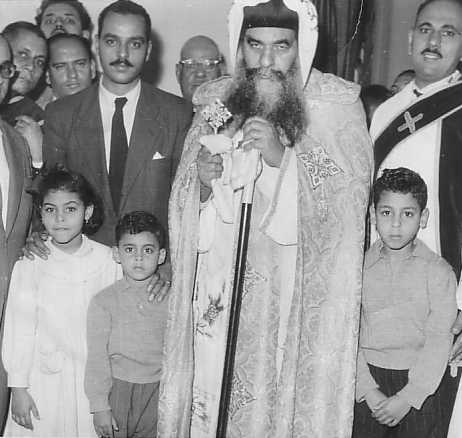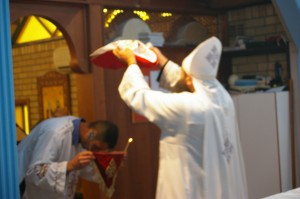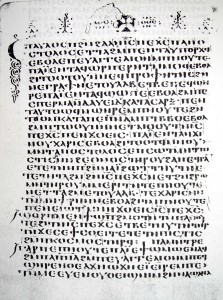“Who dwells in the highest and beholds the lowly” – Anaphora of the Liturgy of St Basil
How incredible to stand before the altar of God (which is His symbolic throne here on earth) and contemplate His true Heavenly Throne. He dwells in the highest of places, His existence is the highest existence, His glory, the highest of glories, and so on. Yet this Being of unimaginable height still cares for a lowly sinner such as I!
One can imagine Zacchaeus the tax collector as he sat perched in the branches of the sycamore tree, trying to glimpse Jesus through the crowd that milled around Him and hid Him from view. Then suddenly, in an instant, a chance configuration of the crowd opens a direct line of sight between him and Jesus. Imagine Zacchaeus’ surprise as he realises that Jesus is looking directly at him! Not only looking, but speaking, taking note of him, acknowledging his existence! Not only that, but actually promising to come and stay in his own house!
“Why me?” you can almost hear him thinking. “Who am I that the Master should choose my house to stay in? I am not important, or popular or rich. I am not a religious leader or even a righteous man. Everyone despises and hates me, and stays away from me. But He wants to stay at my house!”
We too would feel like that if we truly acknowledged our lowliness before God. Every liturgy, the crowd parts, and Jesus is looking directly at YOU. He asks you also, saying, “Today, I would like to stay at your house”. Will you let Him in? Will you free yourself from other commitments? Will you greet Him as Zacchaeus did, with humility and repentance, or will you greet Him as the Pharisee did, with snobbishness and judgment?
It comes back to one thing: do you see yourself as lowly and humble, or as an exalted good and righteous and deserving person? “God resists the proud, but gives grace to the humble” (James 4). If you wish to have Jesus relieve you of your heavy burden, then you must learn from Him, for He is “humble and lowly in heart” (Matthew 11:29). Until I too humble myself before Him and admit my lowliness, I shall never truly experience the full presence and the indescribable glory of the Lord.
The Coptic of this phrase is: Fi-etshop khen ni-etchpsi; owoh etgousht ejen ni-et-theviout. It is one of those phrases in the liturgy where any translation into English fails to do the original meaning full justice.
The word “shop” means to ‘be’, but in a very special way. It mainly means to abide, to be somewhere or simply to be, but it also implies ‘existence’. When used of God in this way, it indicates the theological concept that God IS existence – He is the source of all that exists, and it is He alone who is self-existent; He exists because that is His nature, and not because anyone or anything else causes Him to exist.
The same Coptic word is used in John 8:58: “before Abraham was, I AM [shopi anok pe]”. The “I AM” is usually written in capitals because it was a very clear reference to one of the names of God in the Old Testament. When Moses at the burning bush asked for a name of God to give to the Israelites in Egypt, God told him, “’I AM WHO I AM.’ And He said, ‘Thus you shall say to the children of Israel, “I AM has sent me to you”’” (Exodus 3:14).
Equally beautiful is the word here used for us: ni-et-theviout. The Coptic construction of the word implies far more than is relayed by the English translation, “the lowly”. theviout is an adjectival root that means ‘humble’. But when et comes before it, it comes to mean not that we are humble, but that we have been humbled: it turns the adjective into something that has happened to us or been done to us. Thus, a more accurate translation of this nuance in meaning might be “He that IS, in the highest; and looks upon those who have been humiliated”.
What a beautiful and concise summary of our true state! God is the self-existent Creator who needs nothing. He is not interested in us because we are capable or worthy or strong. He is interested in us most when we are at our weakest, when we are brought low, when we are broken. And this state is one that almost always comes upon us against our own will, for who enjoys being humiliated? Who goes out to seek humiliation on purpose? And yet, it is when we are at our lowest that we are most likely to experience the loving care of God and to feel His presence; to sense that all-encompassing gaze of compassion and care surrounding us and blanketing us with healing and warmth.
And the tune of the Coptic melody brings out this stark contrast of our neediness to God’s powerful compassion beautifully. The melody rises suddenly and dramatically with chosi – ‘highest’; and then it descends rapidly, as if with God’s gaze looking down upon us, to peter out into our lowly humiliation; the last part of theviout.
One imagines a beggar standing at night in a field, looking up at the startling multitude of sparkling gems strewn across the dark velvet backdrop of space and being pierced by its majesty and beauty, and then lowering his gaze once more to behold himself: bedraggled, dirty, torn and bruised from the harsh buffeting of those who despise him.
Such is our state before God.
Fr Ant



 I really like Coptic.
I really like Coptic.